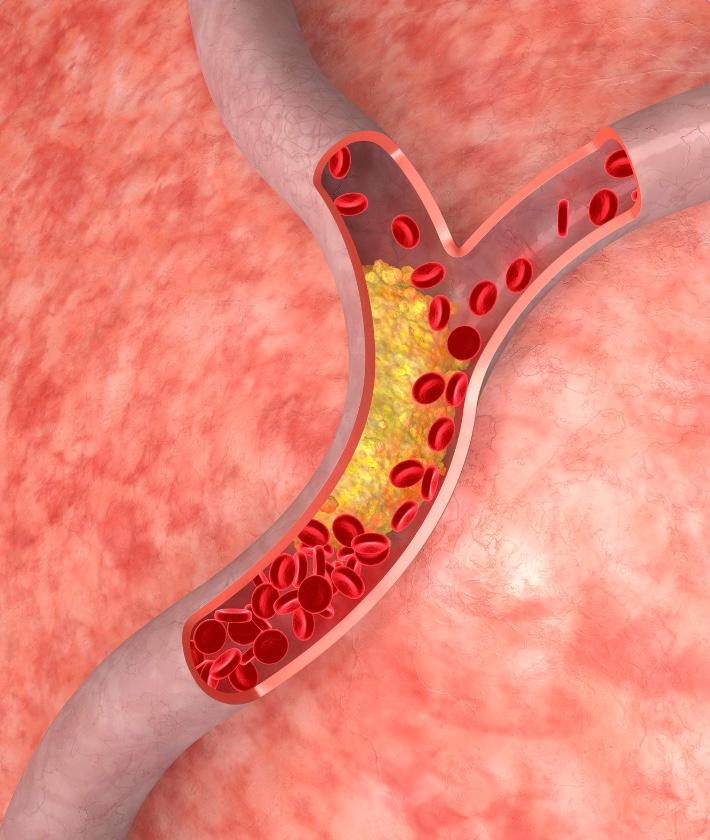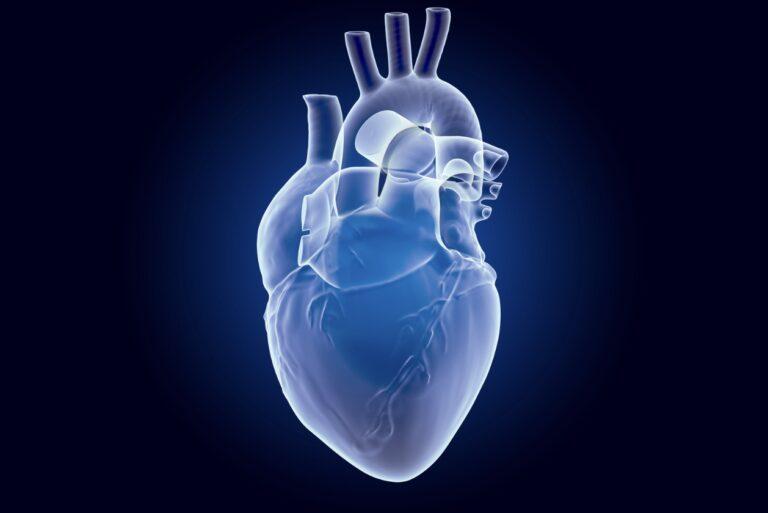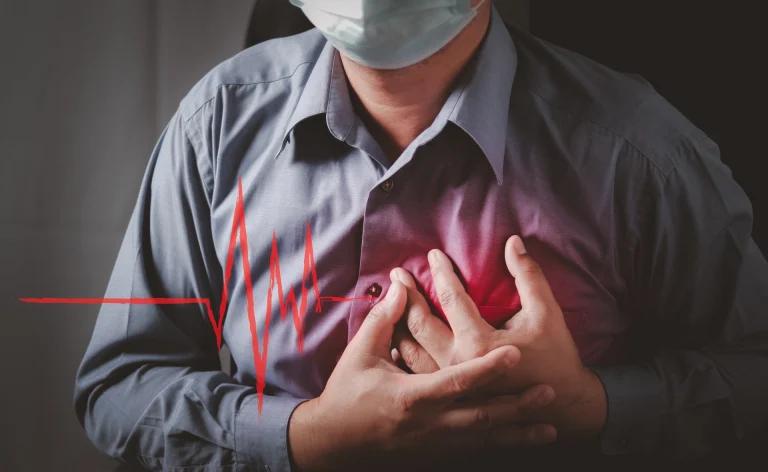
Ischemic heart disease, also called coronary heart disease (CHD) or coronary artery disease (CAD) is the term given to heart problems caused by narrowed heart arteries that reduce blood flow to the heart muscle. Let’s find out more about this cardiovascular disease.
📝 What is ischemic heart disease?
Ischemic heart disease (IHD) refers to a class of heart disease that originates from the heart not getting enough blood and oxygen.
It is a type of heart disease that occurs when arteries become narrow or blocked due to a build-up of fatty deposits of plaque. Plaque is made up of fat, cholesterol, calcium and other substances found in the blood. When plaque builds up in an artery, it is called atherosclerosis.
Atherosclerosis is chronic inflammation of the arteries. It is a process where plaque builds up causing the arteries to harden and accumulate cholesterol plaques on their walls. Although the narrowing can be caused by a blood clot or by constriction of the blood vessel, most often it is caused by build up of plaque. If a piece of the plaque breaks off, this can cause a blockage and cut off the blood supply to the heart causing a heart attack.
📝 What are the causes of ischaemic heart disease?
There are different things that increase your risk of CHD. These can be divided into three categories;
Uncontrollable risk factors
- Family history of CHD
- Age
- Gender
Health conditions
- High blood pressure (hypertension)
- High cholesterol
- Diabetes
Lifestyle risk factors
- Smoking
- Living with excess weight or obesity
- Not doing enough physical activity
🩺 How is ischemic heart disease diagnosed?
A healthcare professional will diagnose based on:
- Medical history
- Symptoms
- Family history
- Lifestyle
- A physical examination
- Blood tests to assess cholesterol levels
You might be referred to Cardiology to be seen by a heart specialist (cardiologist) for further tests that are typically carried out in a hospital setting. Tests include:
- Electrocardiogram (ECG)
- Exercise stress tests. This test monitors your heart rhythm and blood pressure during exercise so that doctors can see how your heart is working whilst you exercise
- X-rays
- Echocardiogram
- Coronary angiogram
🏥 Symptoms of coronary heart disease
Some people may not have any symptoms before they are diagnosed, but the most common symptom of CHD is chest pain (angina), typically on the left side of the body. Other symptoms, such as heart palpitations (arrhythmia) and shortness of breath may also be present.
Angina
Partial blockage of coronary arteries can cause chest pain. Angina is often triggered by physical activity or stressful situations and lasts around 10 minutes (stable angina/angina pectoris).
In time, symptoms may progress to difficulty going up a flight of stairs. Eventually, you may even have symptoms that last longer, even when you are resting (unstable angina).
The pain can:
- Feel like indigestion
- Feel tight and heavy in the centre of your chest
A nitrate tablet or spray can help reduce stable angina symptoms.
Heart attacks
Some people may not have any symptoms and end up having a heart attack (myocardial infarction) due to a completely blocked artery damaging the heart muscle. This is more common in older people and people with diabetes.
The pain of a heart attack is similar to angina, but usually more severe and the pain may extend to your arms, jaw, neck, back and abdomen. Dizziness, sweating, nausea and breathlessness maybe also be symptoms. Treatment is needed immediately and the symptoms can not be helped with a nitrate tablet or spray, unlike angina pain.
Heart failure
Coronary artery disease can weaken the heart muscle, leading to sudden heart failure (acute heart failure) or gradually over time (chronic heart failure). It is a serious condition where the heart becomes too weak to pump blood around your body. Fluid may build up in the lungs, making it hard to breathe.
💊 Treatment
Treatment for CHD is approached using a combination of lifestyle changes, medicine and if needed, surgery.
Medication
Beta blockers, Angiotensin-converting enzyme (ACE) inhibitors, Angiotensin-2 receptor blockers (ARBs), statins, nitrates, calcium channel blockers and blood thinning medicines are medications that may be prescribed.
Surgery
Coronary angioplasty is a procedure that unblocks a coronary artery, using a catheter and a small balloon that is attached to it, with or without a stent. X-rays are used to guide it to the right place. When it is inflated it helps to improve blood supply to the heart.
A coronary artery bypass graft, also known as bypass surgery, is a procedure that creates a new route for blood flow around the heart using an artery from another part of the body. It helps to create more blood flow where there was a limited supply before the operation.
Heart surgery maybe considered for treating coronary artery disease in severe cases. A heart transplant may be needed to serve the same purpose of increasing blood flow in the heart and improving its function.
📝 Conclusion
Ischemic heart disease is a condition that can be treated with medications or procedures to improve blood flow to your heart muscle. Lifestyle changes, such as eating a healthy diet, increasing physical activity, reaching a healthy weight and quitting smoking will all help lower your risk for heart attack or worsening of heart disease.
Sources
- Coronary heart disease – NHS
- About Coronary Artery Disease (CAD) – Heart Disease – CDC
- Ischemic Cardiomyopathy: Symptoms & Causes
- Coronary heart disease – NHS inform
- Myocardial ischemia – Symptoms & causes – Mayo Clinic
Medical Disclaimer
NowPatient has taken all reasonable steps to ensure that all material is factually accurate, complete, and current. However, the knowledge and experience of a qualified healthcare professional should always be sought after instead of using the information on this page. Before taking any drug, you should always speak to your doctor or another qualified healthcare provider.
The information provided here about medications is subject to change and is not meant to include all uses, precautions, warnings, directions, drug interactions, allergic reactions, or negative effects. The absence of warnings or other information for a particular medication does not imply that the medication or medication combination is appropriate for all patients or for all possible purposes.








